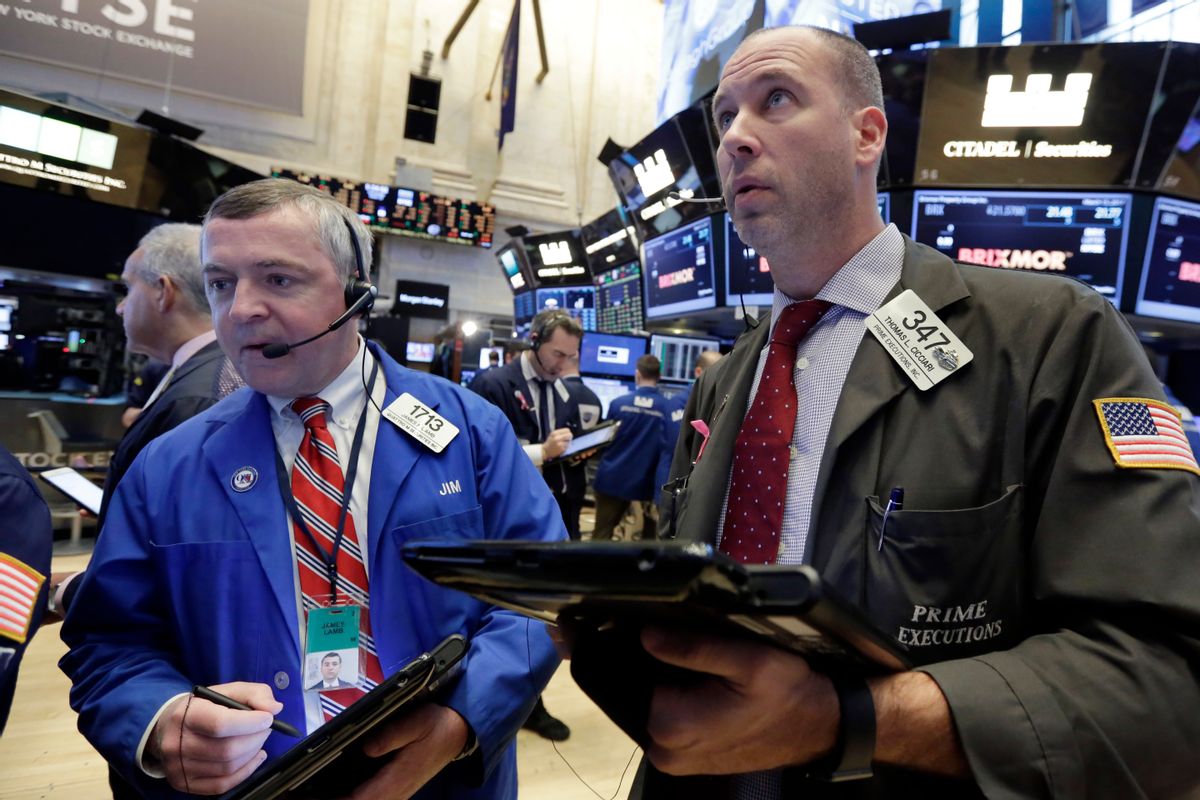President Donald Trump's love affair with the soaring stock market seems to be over.
During the first 12 months of his office, the president couldn't stop talking about the stock market. And for good reason: Stocks were going up without fail, and Trump found an easy way to pat himself on the back.
But stocks go down. And, unlike Sean Hannity, who found an easy scapegoat in Barack Obama, Trump decided to blame the system — the same system he promoted for months.
"In the 'old days,' when good news was reported, the Stock Market would go up," Trump tweeted. "Today, when good news is reported, the Stock Market goes down. Big mistake, and we have so much good (great) news about the economy!"
Perhaps it was a shorthand way for him to say that he believed the driving force of this week's selloff was a response to reports that wages have been increasing. A Trumpian reaction would be that Trump's economy is on fire — that "the market" expects to see rising inflation coming to cool down the rapid growth of the economy.
But that's not what President Trump said. He essentially wagged his finger at the stock market for daring to go down on his watch. Admittedly, he should sell that message to the Wall Street alums who packed their bags to work in his White House.
Trump seemed to indicate that good news was driving stocks down. But does that mean that, contrary to his boasts, the stock market's rise over the past year hasn't been driven by good news but by bad news? And when did this paradigm shift occur? When did the "old days" become the new ones? Jan. 21, 2017?
Either way, Trump getting angry at the stock market is quite "old man yells at cloud." And you can be sure that people were quick to respond to his proclamation with the respect and dignity it so deserved.



Shares